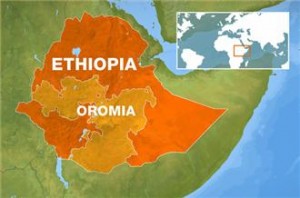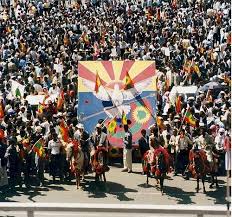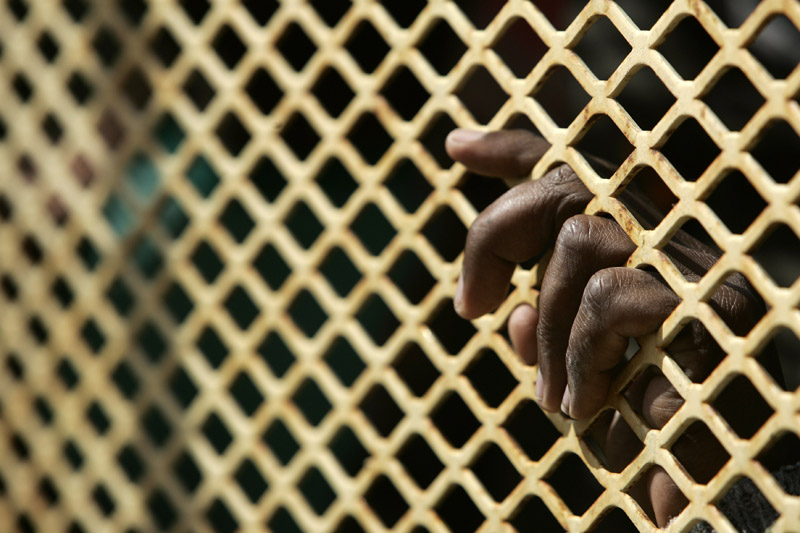The government of Ethiopia is guilty of ethnically targeted human rights violations, according to Amnesty International. The violence is directed against Ethiopia’s largest minority group, the Oromos, and is motivated by political fear. Thousands have been tortured, according the Amnesty’s report.
Amnesty based its report on 200 testimonies gathered in Ethiopia. “We interviewed former detainees with missing fingers, ears and teeth, damaged eyes and scars on every part of their body due to beating, burning and stabbing–all of which they said were the result of torture,” said Claire Beston, Amnesty International’s Ethiopia researcher.
 The testimonies included extensive reports of torture and abuse, including prolonged detainment, detainment without charge, detention in unofficial military camps, mutilation using bayonets, hot coals, and hanging by wrists. Beatings, electric shocks, mock executions, burning with metal or molten plastic, rape and gang rape were common abuses reported.
The testimonies included extensive reports of torture and abuse, including prolonged detainment, detainment without charge, detention in unofficial military camps, mutilation using bayonets, hot coals, and hanging by wrists. Beatings, electric shocks, mock executions, burning with metal or molten plastic, rape and gang rape were common abuses reported.
The reason for the targeted abuse, according to Amnesty, is political. The government fears political opposition, stemming particularly from the Oromo Liberation Front (OLF), a regional armed group. Ethiopia will hold general elections in 2015, and Amnesty expects human rights abuses will continue or increase.
“The Ethiopian government’s relentless crackdown on real or imagined dissent among the Oromo is sweeping in its scale and often shocking in its brutality,” said Beston.
“This is apparently intended to warn, control or silence all signs of ‘political disobedience’ in the region.”
Numerous reports detailed arrests without cause or with only suspicion, arrests without charge or without trial, and arrests and retribution against uninvolved family members.
“People are arrested for the most tenuous of reasons: organizing a student cultural group, because their father had previously been suspected of supporting the OLF or because they delivered the baby of the wife of a suspected OLF member. Frequently, it’s because they refused to join the ruling party,” said Beston.
 In April and May 2014, ethnic conflict in Ethiopia received international attention after security forces opened fire during a series of peaceful protests, and beat hundreds of protesters and bystanders. Dozens died and thousands were injured.
In April and May 2014, ethnic conflict in Ethiopia received international attention after security forces opened fire during a series of peaceful protests, and beat hundreds of protesters and bystanders. Dozens died and thousands were injured.
“These incidents were far from being unprecedented in Oromi,” said Beston. “They were merely the latest and bloodiest in a long pattern of suppression. However, much of the time, the situation in Oromia goes unreported.”
Approximately 5,000 ethnic Oromos have been arrested between 2011 and 2014 for political reasons, according to Amnesty.
Amnesty stated that it believed there was an urgent need for intervention in Ethiopia by regional and international humanitarian organizations that could conduct independent investigations into human rights abuse allegations in Oromia.
“The Ethiopian government must end the shameful targeting of thousands of Oromos based only on their actual or suspected political opinion. It must cease its use of detention without charge, torture and ill-treatment, incommunicado detention, enforced disappearance and unlawful killings to muzzle actual or suspected dissent,” said Beston.
Amnesty’s report, “‘Because I am Oromo’ – Sweeping repression in the Oromia region of Ethiopia,” was published on the Amnesty International website in late October.
By Day Blakely Donaldson
Photo: Rod Waddington
